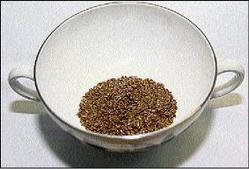
DIETITIAN'S DESK - Rosalee Brown
Some of us are at the age where we now take more than fleeting interest in the obituaries as many of our schoolmates and associates are now making their appearance. Unfortunately, some are as a result of accidents and crime but a large number are as a result of chronic non-communicable diseases.
In recent weeks, I have noted the passing of a few individuals who have succumbed to one of these diseases, especially strokes. I just need to remind individuals that no matter how young and invincible we think that we are, we will be cut down by this malady if we are at risk and do not take heed and the requisite precautionary measures.
What is a stroke?
A stroke is an attack on the brain resulting from, in most cases, insufficient blood supply to the brain and, in other cases, bleeding in the brain when there is a rupture or leaking blood vessel.
Risk factors
Age - As you age, your risk of a stroke increases and it is more common in persons over 55 years old but younger persons are not immuned.
Gender - It affects men and women about the same but, in people under 75 years old, more men have strokes than women and some evidence says that women are more likely to die of a stroke than men.
Family history - Risk increases when first-line family members have had a stroke.
Ethnicity - Stroke rates are high in blacks and Caribbean people.
High blood pressure - Increases your risk for a stroke by weakening blood vessels in and around the brain and makes them more prone to damage.
Cholesterol - High levels of low-density lipoproteins (LDL - bad cholesterol) can cause arteriosclerosis, as well as high triglyceride levels. Low levels of high density lipoproteins (HDL - good cholesterol) indicate increased risk as at high levels it helps to reduce cholesterol.
Diabetes - With diabetes your blood vessels become unhealthy making them more prone to damage. Diabetes also interferes with your body's ability to break down blood clot making it more prone to stroke from a blockage.
Obesity - Overweight and obesity increase the risk of high blood pressure, diabetes and the other disease states that increase the risk for stroke.
Cigarette smoking - Smoking contributes to inflammation and plaque build-up in the arteries. Nicotine increases heart rate and blood pressure making your heart work harder, and carbon monoxide in cigarette smoke robs your blood of oxygen reducing the amount delivered to the tissues. Smokers, therefore, have a greater risk of stroke than non-smokers.
Other factors such as high intake of alcohol, drug use, hormone therapy and uncontrolled stress can increase stroke risk.
Prevention using diet
Reduce your body weight by reducing portion sizes and consuming whole foods.
Reduce sodium in the diet and eat foods high in potassium such as vegetables to help in reducing high blood pressure.
Have foods low in total fats, saturated and trans fat and cholesterol.
Drink alcohol in moderation.
Have vegetables of a wide variety of colours. Your intake should be five or more servings per day; have both cooked and raw vegetables.
Have peas and beans which are rich in proteins and soluble fibre.
Have small portions of low-fat meats.
Have foods rich in omega-3 fatty acids such as mackerel, tuna and salmon and seeds such as flax.
Other prevention methods
Exercise daily by getting involved in a variety of enjoyable activities that increase movement.
Find ways to manage stress.
Learn relaxation techniques.
Do regular monitoring of existing disease states.
Rosalee M. Brown is a registered dietitian/nutritionist who operates Integrated Nutrition and Health Services; email: yourhealth@gleanerjm.com.

Foods rich in omega-3 fatty acids such as flaxseed lower risk for strokes - Andrew Smith/Photography Editor

